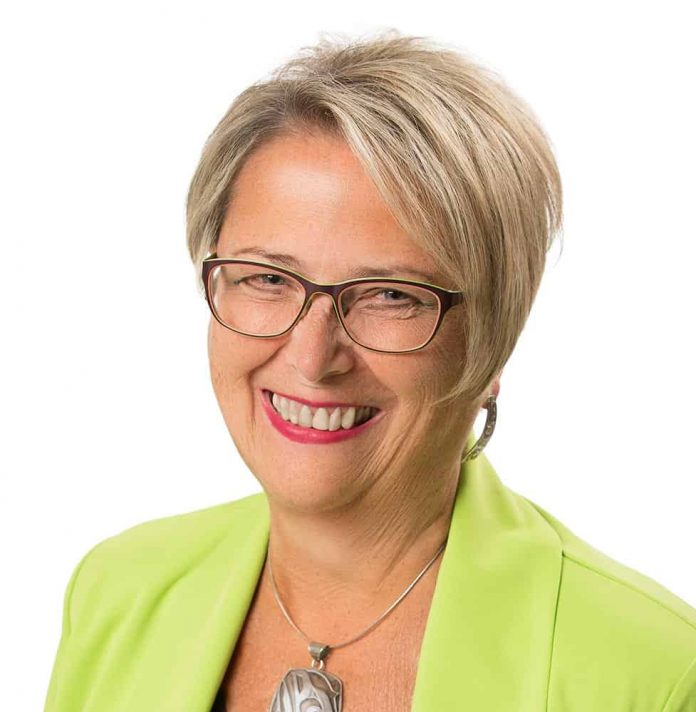JUDY Darcy, Minister of Mental Health and Addictions, reacting to the BC Coroners Service’s monthly report on illicit drug toxicity deaths for July on Tuesday, said: “COVID-19 measures continue to have devastating, unintended consequences for people who use substances. A heart-wrenching 175 people lost their lives in July due to an illegal drug supply that is more toxic than it has ever been in B.C. These were treasured friends, neighbours, partners, parents and children. The vast majority were men between the ages of 19 and 49. Some were fathers. They were people from all walks of life who cared deeply about their families and the people they loved.”
She pointed out: “Prior to COVID-19, overdose deaths were coming down in B.C. for the first time since 2012. Several years of efforts to save lives were making a difference. Last year, analysis from the BC Centre for Disease Control estimated that nearly 6,000 deaths have been averted since April 2016, thanks to the life-saving supports that are in place here, including scaling up the distribution of naloxone, the establishment of more overdose preventions sites and improved access to medication-assisted treatment. But these efforts have strained against the challenges of COVID-19.”
Darcy added: “Social isolation, disconnection from community and in-person supports, financial pressures, growing mental health challenges, and a drug supply that is becoming more and more toxic, have all contributed to an increase in substance use and increased risk. B.C. is not alone. The impacts of a toxic drug supply are being felt across Canada. From March to July, suspected overdose deaths jumped 85% in Toronto over the same period in 2019. In Montreal, July had the highest number of deaths recorded in one month since 2014. In the Yukon, overdose deaths so far in 2020 are double that of all 2019. And in Alberta, there were 60 overdose deaths in March, compared to 39 in February of this year. So many valued lives have gone far, far too soon.
“We have been working flat-out to reduce overdose deaths since we formed government. Since COVID-19 hit, we have escalated our response to counter the effects of the pandemic and to get more people on a path to treatment and recovery. Since March, we have introduced new guidance to give people access to a safe supply of prescription medications, doubled the number of youth treatment beds in the province, invested $10.5 million to increase the number of overdose prevention sites (including inhalation sites and supplies), provided more outreach teams, enabled registered nurses to help implement the safe supply guidance, invested $16 million in the creation of more bed-based treatment and recovery services, partnered with the federal government to support innovative harm reduction programs and supported or enhanced 16 substance-use integrated teams to make sure that people who connect with the health-care system stay connected.
“We know there is more work to do, and we could not do it without the continued heroic efforts of the frontline workers, peer support workers and first responders who pour their hearts and souls into saving lives, day in and day out.
“British Columbians showed the world what we could do when it came to COVID-19. We joined together, we took care of one another and we kept people safe. We must do the same for the overdose public health emergency in this province and we must do it now.”

JANE Thornthwaite, BC Liberal Critic for Mental Health and Addictions, said: “It’s heartbreaking to continue to witness a record number of overdose deaths in British Columbia month-after-month. This year has been marked by tragedy as we deal with not one, but two public health crises. People across B.C. need immediate help to save lives, but the NDP continues to underdeliver on a mental health and addictions strategy, leaving those with addictions lacking the support they need.”
She said that the updated illicit drug overdose death report shows illicit drug overdose deaths in each of the six B.C. health authorities is either at or near its highest monthly total ever recorded, averaging approximately 5.6 deaths per day province-wide. The number of deaths recorded in July 2020 represents a 136 per cent increase over the number of deaths seen in July 2019.
Thornthwaite added: “It has never been more critical for the NDP to take comprehensive action and start funding the services people desperately need to get them into seamless treatment and recovery. Each month, first responders are having to respond to more overdoses than the last, families continue to plead for treatment options, and the NDP continue to stall to invest in meaningful services across the province. Too many lives are at stake and it’s time for [Premier] John Horgan to invest in an effective mental health and addictions system.”














